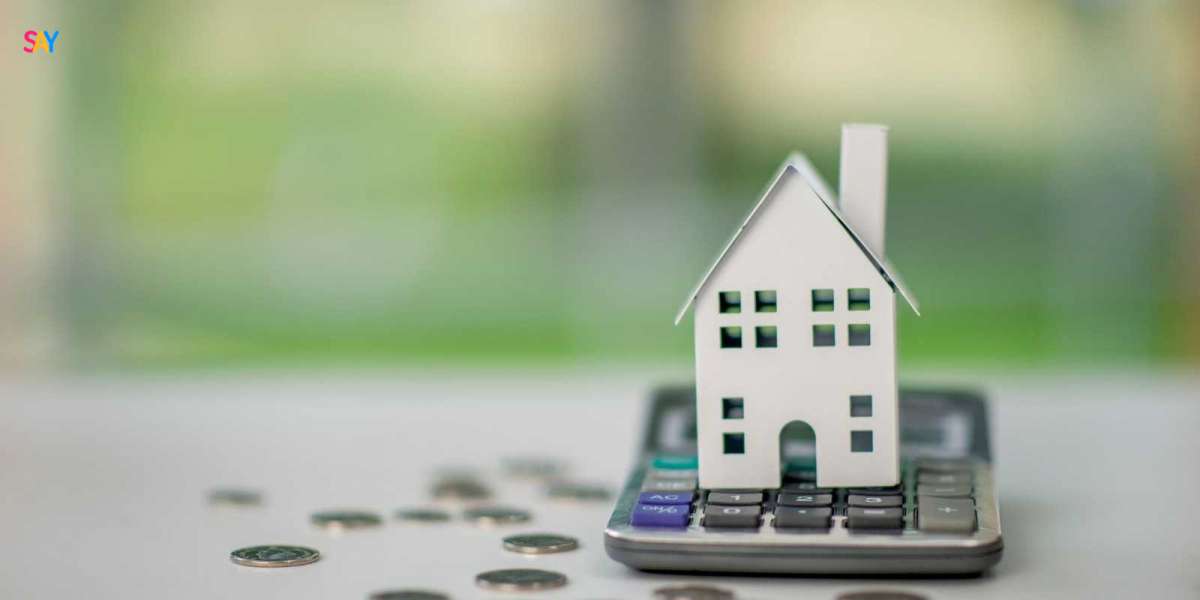Dubai, with its towering skyscrapers, luxurious living standards, and dynamic property market, has become an appealing destination for investors worldwide. If you're thinking about buying property here, one of the most important factors to consider is securing a mortgages in Dubai. This article explores everything you need to know about mortgages in Dubai, from types and eligibility to how the mortgage market operates.
What is a Mortgage?
A mortgage is essentially a loan taken out by individuals or businesses to purchase property, where the property itself serves as collateral. In the case of a default, the lender can seize the property to recover the outstanding loan amount. In Dubai, mortgages allow both residents and non-residents to buy real estate, making it an attractive option for those looking to invest in the city’s booming property market.
When you're considering a mortgage, it's important to understand the different terms, such as the interest rate, down payment, and loan tenure.
Types of Mortgages Available in Dubai
Dubai offers several types of mortgages to suit various financial needs and preferences. The three most common ones are:
1. Fixed-Rate Mortgages
A fixed-rate mortgage means your interest rate remains constant throughout the loan term. This offers stability as you know exactly how much your monthly payments will be. Fixed-rate mortgages are ideal for those who prefer predictability in their finances, especially with the potential fluctuations in interest rates.
2. Variable-Rate Mortgages
On the other hand, variable-rate mortgages come with interest rates that can change over time, typically in line with market conditions or the central bank's base rates. This type of mortgage can result in lower initial rates, but it carries the risk of higher payments if interest rates rise.
3. Islamic Mortgages (Murabaha)
Murabaha is a type of Islamic mortgage that complies with Sharia law, meaning it avoids interest-based transactions. Instead, the bank buys the property and sells it to the buyer at a marked-up price, with the buyer paying the agreed-upon price in installments over time. This is a popular option among UAE nationals and those seeking Sharia-compliant financing.
Eligibility for Mortgages in Dubai
Whether you're an expat or a UAE national, securing a mortgage in Dubai is possible, but there are specific eligibility criteria.
1. For UAE Nationals
UAE nationals generally enjoy better terms when applying for mortgages. The age limit for taking out a mortgage is typically between 21 and 60 years. Banks are often more willing to approve loans for nationals due to their stable financial position and government backing.
2. For Expats
Expats can also apply for mortgages, but there are certain conditions to meet. You need to have a valid residency visa, a stable income, and a good credit history. Additionally, most banks will require expats to provide a higher down payment compared to UAE nationals, typically around 25-30% of the property value, depending on the bank's policies. Expats should also be between 21 and 65 years old to be eligible for a mortgage.

How to Apply for a Mortgage in Dubai
Applying for a mortgage in Dubai involves several steps. Here's a simplified breakdown of the process:
Step 1: Research Lenders
Begin by researching different banks and financial institutions offering mortgage products. Compare their interest rates, terms, and fees.
Step 2: Gather Documentation
To apply, you'll need to provide a range of documents, including:
- Proof of identity (passport, residency visa)
- Proof of income (pay slips, bank statements)
- Proof of employment (employment letter)
- Property details (if you've already chosen a property)
Step 3: Mortgage Application
Once you've selected a lender and gathered the necessary documents, you can submit your mortgage application. The bank will evaluate your financial status and assess your ability to repay the loan.
Step 4: Approval and Property Valuation
If your application is successful, the bank will conduct a property valuation to ensure it's worth the loan amount. Once approved, you’ll be given the loan agreement to sign.
Step 5: Loan Disbursement
Upon signing the agreement, the bank will disburse the loan, and you can proceed with the purchase of your property.
Mortgage Rates in Dubai
Interest rates are a crucial factor when deciding on a mortgage in Dubai. They typically range between 3% to 5% annually, depending on the lender and the type of mortgage. Variable rates are usually lower than fixed rates, but they come with the risk of fluctuating payments.
The interest rate you’re offered depends on various factors, including your credit score, income, the size of the loan, and the term length. It's essential to keep an eye on market conditions as rates can change, especially in times of economic uncertainty.
Down Payment and Loan-to-Value Ratio (LTV)
When applying for a mortgage in Dubai, you'll need to make a down payment. The amount varies depending on your residency status:
- UAE Nationals: The down payment is usually 20% of the property value.
- Expats: The down payment typically ranges from 25% to 30% of the property value.
The loan-to-value (LTV) ratio represents the loan amount relative to the property value. For most mortgages in Dubai, the LTV ratio is capped at 80% for UAE nationals and 75% for expats, meaning you'll need to contribute the remaining percentage as a down payment.
Term Lengths and Payment Schedules
Mortgages in Dubai usually come with loan terms of 15 to 25 years, depending on your age and the bank’s policies. Most banks offer monthly repayment schedules, which means you’ll pay back the loan in equal monthly installments over the loan term. The amount of your monthly payment will depend on your loan amount, interest rate, and the term length.
Tax Considerations for Mortgages in Dubai
One of the major advantages of purchasing property in Dubai is the absence of property taxes. Unlike many other countries, Dubai does not impose taxes on property ownership, rental income, or capital gains. This makes Dubai a highly attractive destination for property investors and buyers alike.
However, while there are no property taxes, there might be other fees to consider, such as registration fees, which usually amount to 4% of the property's value.

Choosing the Right Mortgage Provider in Dubai
With numerous banks and lenders offering different mortgage options, it's essential to choose the one that best fits your needs. When comparing mortgage providers, consider factors such as:
- Interest rates and fees
- Reputation and customer service
- Lender’s flexibility in loan terms
- Reviews and testimonials from other customers
It's also wise to work with a mortgage broker, who can help you navigate the market and secure the best possible deal.
Common Mortgage Mistakes to Avoid
Before committing to a mortgage in Dubai, be aware of the common mistakes many people make:
- Over-borrowing: Taking out more than you can comfortably repay can put you at risk of default. Be realistic about your financial situation.
- Ignoring the fine print: Always read and understand the terms and conditions of the mortgage agreement, especially regarding early repayment penalties and interest rate changes.
Mortgage Insurance in Dubai
While mortgage insurance is not mandatory in Dubai, it is often recommended to protect both you and the lender in case of unforeseen circumstances such as illness, job loss, or death. Insurance can help ensure that the mortgage is paid off even if you're unable to meet the payments.
How the Dubai Property Market Affects Mortgage Rates
The property market in Dubai has a direct impact on mortgage rates. When demand for real estate is high, property prices rise, and banks may adjust their mortgage rates accordingly. Economic factors such as inflation, interest rates set by the UAE Central Bank, and global economic conditions also play a role in determining mortgage rates.
Benefits of Getting a Mortgage in Dubai
Securing a mortgage in Dubai comes with several advantages, including:
- Long-term financial security through property ownership
- No property taxes make Dubai an attractive investment
- Easy access for expats to property ownership with reasonable terms
- Stable property market, which offers consistent growth potential
Conclusion
Mortgages in Dubai are a key factor for both residents and non-residents looking to invest in the city's thriving real estate market. Whether you’re a first-time homebuyer or an investor, understanding the types of mortgages, eligibility criteria, and associated costs is essential to making an informed decision. Dubai’s mortgage market offers a range of options, with competitive rates and attractive terms, making it an ideal location for property investment.
FAQs
1. What are the interest rates for mortgages in Dubai? Interest rates for mortgages in Dubai typically range from 3% to 5%, depending on the lender and type of mortgage.
2. Can expats get a mortgage in Dubai? Yes, expats can secure a mortgage in Dubai, but they may need a larger down payment compared to UAE nationals (typically 25-30%).
3. Is mortgage insurance required in Dubai? Mortgage insurance is not mandatory in Dubai, but it is recommended to protect both you and the lender.




